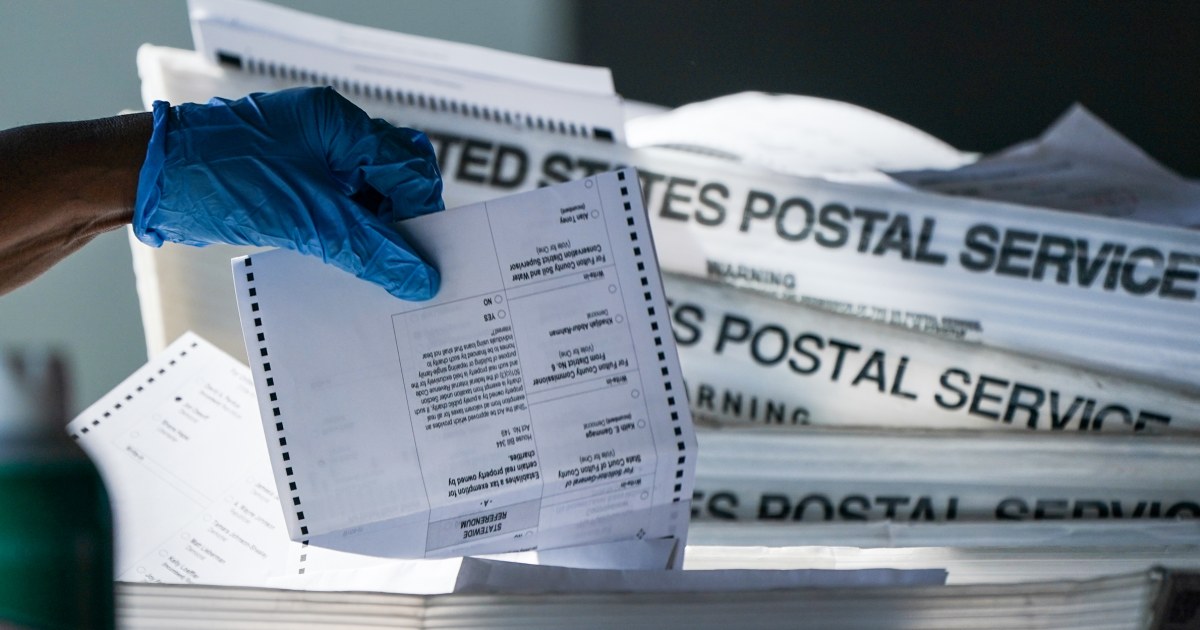
Jennifer Lee has voted by absentee ballot several times in her life, but she’s never had an experience like she did this year. As a dual citizen of the U.S. and South Korea, this was the first time she cast her vote from abroad — and the process came with hoops.
“It’s definitely been a challenge,” Lee told NBC News. “When I was stateside, I was able to go to someone’s house and use their printer or go to an office supplies store. When I moved overseas, it wasn’t as easy.”
Thousands of dual citizens like Lee are eligible to vote in the coming election, and experts say in a close race, they could be a critical bloc.
These ballots could make a significant impact in close-call elections. In 2020, Georgia saw 27,252 votes cast from abroad, which exceeded the 11,779-vote margin of victory that flipped the state blue. The same was true for Arizona, where 21,661 overseas votes exceeded the state’s 10,457-vote margin of victory.
But while dual citizens have a constitutional right to cast their ballot, a messy system and a lack of infrastructure often keeps them from doing so, advocates said. Getting their ballot printed and postmarked by Nov. 8 isn’t as easy as it is for people voting absentee within the U.S.
For those who don’t speak English, don’t have a U.S. address, or are in a country with an unreliable postal system, the sheer time it would take to vote by mail is enough to be prohibitive.
“Sometimes in the end it’s a case where there’s no great solution,” said Emily Lines, the global Asian Americans and Pacific Islanders Caucus chair for Democrats Abroad. “Unfortunately, they’re just losing their right to vote and will be disenfranchised.”
Lines helps dual citizens living in Asia access election information and get their votes in, and though there’s a lack of official data on how many people these issues impact, she said voting from abroad is more difficult across the board.
“It is a wide range of people from various socioeconomic backgrounds that are living overseas,” Lines said. “These aren’t just rich retirees or well-off people.”
The troubleshooting she’s done runs the gamut from computer troubles to translations to people not knowing they have the right to vote in the first place.
“Someone was telling me they sent their ballot off at the beginning of October, and they still haven’t gotten notification that it arrived,” Lines said. “Every state should allow ballots to be returned by email.”
Even for voters like Lee who have most of the resources they need, the specific printing requirements, planning and cost of shipping their ballot make it a difficult system to navigate.
“It’s very expensive to send it directly back to the United States,” Lee said. “But I know that’s the only way to ensure that it will get there properly and on time.”
The process of voting from abroad
While the process varies from state to state, dual citizens living abroad encounter challenges at every step of the election process.
Registering to vote must be done well in advance, and it can usually be done online. But what should be the simplest part of voting comes with its own challenges.
“Some states have tried to up their election website security. However, they’ve automatically blocked IP addresses that are not U.S. IP addresses,” Lines said. “So people say, ‘Well, I can’t get to the website.’ So we’re like, ‘OK, you need to get a VPN and do all this extra stuff.’”
Beyond simply accessing the website, U.S. citizens who were born abroad might not be able to register to vote at all. Thirteen states — including Texas, Florida and Pennsylvania — prohibit absentee voting for citizens who have never resided in the country.
“Obviously telling people, ‘Well, just go live there for 30 days,’ is not something that people can just do,” Lines said. “We’re doing our best to try and help them as much as possible. ‘Do you have any close relatives that live in a different state in the U.S.? Maybe you can use their address.’”
If all that fails, many just lose their chance to vote.
“As U.S. citizens, regardless of where you live overseas, or where you’re residing, you have to file taxes for the U.S.,” she said. “So, they have that right to vote, they should be able to vote and sometimes they just can’t.”
After someone successfully registers to vote from abroad, the next step is applying for and sending back a mail-in ballot.
Lines said she’s seen people struggle to achieve the specific paper sizing and marking required for the ballot to be counted, as those things can vary by region. Most states also require ballots to be postmarked by Election Day and received by the seventh day after the election to be counted. Some countries don’t postmark mail at all.
“It gets really tricky,” she said. “An additional thing that we always have to tell people is, ‘Make sure you get a postmark.’”
‘Why should they vote?’
With seemingly endless possible hoops to jump through, Lines said it’s easy for folks, especially those with little connection left to the U.S., to not feel an incentive to vote. She’s battled with the question herself: Why should a citizen who’s never lived in the U.S. vote at all?
But the answer she’s come to is simple: It’s their right.
“We are one of these countries that allow people to vote if they have citizenship, regardless of how long they’ve been outside of the country,” Lines said. “I feel like if they have that right, they should exercise that right, because that could get taken away. In some cases, it is being taken away.”
Lee said she has always been the person in her family pushing people to vote. When it came to voting this year from Korea, she didn’t see it as any different.
“I just think it’s important to make your voice heard even though you are not physically in the United States,” she said. “I think that you can still make a difference with your votes.”
Some dual citizens might not call the U.S. home, but Lines said America’s policies have an effect everywhere.
“What happens in the U.S. impacts everyone around the world, whether we like it or not,” she said. “This will have an influence on their lives probably in some way, whether directly or indirectly. We saw in 2016 through 2020 the kind of impact the president can have on their lives. If they have the right and can help influence how that turns out, then they should. It’s worth it.”
Source: | This article originally belongs to Nbcnews.com










